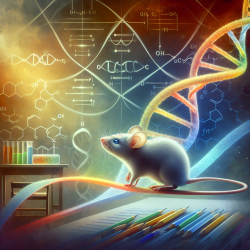As practitioners dedicated to supporting individuals with autism spectrum disorders (ASD) and related conditions, staying informed about the latest research is crucial. One such study that offers valuable insights is the research on Shank3-deficient mice. This study explores the genetic and behavioral implications of Shank3 haploinsufficiency, a condition linked to Phelan-McDermid syndrome (PMS) and ASD.
Understanding Shank3 and Its Role
Shank3 is a synaptic scaffolding protein essential for the structural integrity of excitatory synapses. It plays a critical role in synaptic function and plasticity. In humans, haploinsufficiency of SHANK3 due to chromosomal abnormalities or mutations can lead to PMS, characterized by developmental delays, intellectual disabilities, and ASD symptoms.
Research Findings: Strain Effects on Behavioral Phenotypes
The study titled "Absence of strong strain effects in behavioral analyses of Shank3-deficient mice" investigates how genetic backgrounds influence the behavioral phenotypes of Shank3-deficient mice. Researchers used three different strains—C57BL/6, 129SVE, and FVB/Ntac—to assess the impact of genetic background on observable behaviors.
- Key Finding: The study found very modest strain effects across a large battery of behavioral analyses. This suggests that the behavioral phenotypes associated with Shank3 haploinsufficiency are largely strain-independent.
- Implications for Practice: For practitioners, this finding highlights the potential for consistent behavioral traits in individuals with PMS or ASD regardless of genetic background. It underscores the importance of focusing on individual-specific interventions rather than assuming variability based solely on genetic differences.
Encouraging Further Research
The study opens avenues for further investigation into the molecular mechanisms underlying PMS and ASD. Understanding these mechanisms can lead to more targeted therapeutic approaches. Practitioners are encouraged to stay engaged with ongoing research to continually refine their strategies for intervention.
Absence of strong strain effects in behavioral analyses of Shank3-deficient mice
Conclusion
The research on Shank3-deficient mice provides valuable insights into the genetic and behavioral aspects of PMS and ASD. By understanding these findings, practitioners can enhance their skills and improve outcomes for individuals with these conditions. Continued engagement with research will ensure that interventions remain informed by the latest scientific advancements.










